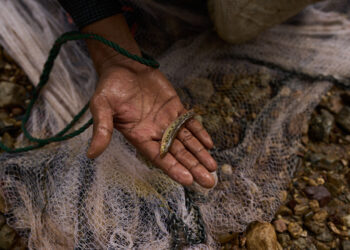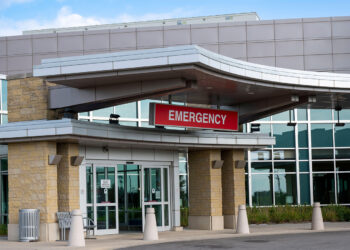Barajas Airport in Madrid, Spain, recorded approximately 120 drug smuggling cases in 2024. Airports remain key transit points for so-called drug “mules” — individuals who attempt to smuggle narcotics by concealing them in luggage, attaching them to their bodies, or ingesting them in pellet or “acorn” form. In 2023, authorities at the airport reported a record volume of seized narcotics, including one ton of hashish and 2.5 tons of cocaine.
Rosa Pérez Losa, MSc, emergency coordinator at Sistema d’Emergències Mèdiques Catalonia, Catalonia, Spain, said, “The Emergency Medical System in Catalonia is typically contacted only when a person suspected of drug transport shows significant symptoms. “We’re usually called only if the individual displays significant medical issues,” she noted. “The Civil Guard often identifies potential drug mules, such as passengers traveling alone on so-called hot flights. Recently, traffickers have also started using vulnerable individuals, including people with mental disabilities or those who use orthotics or wheelchairs, in an attempt to bypass security checks more easily.”
A common indicator of suspicious behavior is visible nervousness. Authorities may stop individuals based on the origin of their flight, signs of agitation, or seasonal trafficking patterns, such as the periods following the cocaine harvest. Suspected individuals are separated from other travelers and questioned about their travel arrangements, financial details, and contacts in Spain. If their responses raise concern, they are taken to a restricted area. In some cases, individuals voluntarily admit to carrying drugs inside their body or, in extreme anxiety, may even defecate, Pérez Losa said.
Another red flag, added by Pérez Losa, is unusual drowsiness, as mules are administered benzodiazepines to keep them calm in transit. Airport medical staff are not involved unless the individual displays significant symptoms. Instead, suspected mules are taken into custody by the Civil Guard, as drug transportation is considered a serious public health offense.
If required, x-rays are performed at the airport by senior diagnostic imaging and nuclear medicine technicians or physicians with appropriate radiology training and accredited by the Nuclear Safety Council.
“If the person shows any significant symptoms, Emergency Medical Services are called, and the individual is taken to hospital by ambulance. In most cases, the Civil Guard transfers the suspect to a tertiary care center, such as Bellvitge University Hospital in Catalonia or Ramón y Cajal University Hospital in Madrid, Spain. These centers are chosen to ensure surgical intervention is immediately available if a packet ruptures inside the body.”
At the hospital, an abdominal x-ray with oral barium contrast is performed, and the use of laxatives depends on the clinical circumstances. If an individual appears stable, they are admitted under police supervision and monitored until the drug packets are expelled, with close observation during bathroom use. Laxatives may be administered to accelerate passage if the person is anxious or retention is prolonged. If drugs are concealed in the rectum or vagina, manual removal is conducted carefully to avoid compromising the integrity of the packet. Surgery is rarely required and is typically reserved for cases of suspected packet ruptures.
Drug packets are commonly fabricated using condoms, plastic wrap, or the fingertips of rubber gloves and are often coated with petroleum jelly to aid ingestion. “Mules are often trained by swallowing similarly shaped objects,” Pérez Losa explained. “They may also receive antiemetics before travel to suppress vomiting and slow the gastrointestinal transit. However, complications can also occur. Some passengers vomit or lose bowel control in-flight, prompting ambulance intervention on arrival.”
Most packets contained cocaine, although heroin and other substances may also be used. Each typically holds between 5 g and 10 g of the drug. The exact toxic dose is unknown, but fatalities have been reported with as little as 20 mg absorbed in cases of rupture. While rupture of packets in the stomach is rare and usually linked to poorly made packets, pellets more frequently cause problems by lodging in the intestines, leading to ulceration, bleeding, or even perforation of the esophagus, and severe sepsis.
Cocaine affects both the central nervous and cardiovascular systems, potentially leading to stroke, cerebral hemorrhage, myocardial ischemia, arrhythmias, or sudden death. There is no antidote to cocaine toxicity, although heroin overdose can be treated with naloxone administered intranasally or intravenously.
Pérez Losa recalled a case involving a child. “A mother reported that her son had swallowed drug packets. Although he appeared well, we activated the full emergency protocol, conducted an x-ray at the airport, arranged immediate medical evaluation, and admitted him to the pediatric intensive care unit as a precaution,” she said.
This story was translated from El Medico Interactivo.
Source link : https://www.medscape.com/viewarticle/airport-drug-mules-what-happens-when-packets-burst-2025a1000j7b?src=rss
Author :
Publish date : 2025-07-21 07:50:00
Copyright for syndicated content belongs to the linked Source.








